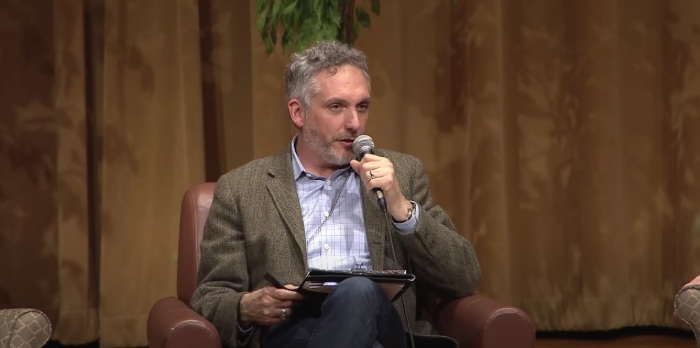
The Anglican Church in North America has delayed the denomination’s trial proceedings for a bishop accused of mishandling abuse cases due to the prosecutor’s resignation.
Bishop Stewart Ruch III of the Anglican Diocese of the Upper Midwest was recently put on trial for allegedly failing to properly respond to sexual and spiritual abuse within his diocese.
However, the ACNA Ecclesiastical Court for the Trial of a Bishop issued an order on Sunday, noting that the resumption of the trial had been rescheduled from July 21 to Aug. 11.
The order, which was signed by Court President Bishop David Bryan and Presiding Officer the Rev. Canon Jeffrey G. Weber, cited the resignation of Alan Runyan as provincial prosecutor as the reason for the postponement.
“The Court issues this Order in full recognition of the complexities created by the resignation of the Provincial Prosecutor and the Province’s ongoing efforts to appoint a successor, but concludes that the public interest in resolution, the rights of the Respondent, and the need for finality in this prolonged matter all compel that the proceedings must now move forward without further undue delay,” the order explained.
“The Court remains committed to conducting a full and impartial adjudication on the merits and assures all parties that no adverse inference shall arise from the procedural posture of either side as of this date.”
ACNA Archbishop the Most Rev. Steve Wood wrote in a letter on Sunday that he considered the resignation of Runyan to be “an unsettling and surprising development” in the proceedings.
“This is a serious and concerning situation for the Church,” added Wood. “I ask for your continued prayers. I remain confident that Christ will lead us forward as we seek to honor Him in all things.”
In June 2021, ACNA received reports of an “erosion of trust” within the Illinois-based Upper Midwest Diocese due to allegations that diocesan leadership was mishandling abuse allegations.
A major example was ACNA lay leader Mark Rivera, who was arrested and eventually found guilty of multiple charges of sexual assault, with his 9-year-old goddaughter being a victim.
Issues over how the Ruch-led diocese was handling allegations led to the launching of ACNAtoo, a watchdog group centered on abuse survivors within the denomination.
In August 2023, ACNA announced that Ruch would face an ecclesiastical trial, with charges including violating ordination vows, “conduct giving just cause for scandal or offense, including the abuse of ecclesiastical power” and for “disobedience, or willful contravention” of denominational bylaws.
In a statement released at the time, Ruch said that he was “thankful” and “relieved that there will be an occasion to hear all sides and gain some resolution after two years.”
“Please bring your concerns to your clergy, vestry, or parish councils, who will offer care in every way possible. I am so thankful for your faithfulness in praying for healing for all and for the Lord’s leading during this painful season,” Ruch stated.
“Please pray for everyone involved in these proceedings. And pray that, in the meantime, our diocesan churches receive God’s blessing as they continue to carry out their Gospel work.”
On Saturday, Runyan, a longtime practicing attorney who was supposed to serve as the provincial prosecutor in the trial, sent a letter to Wood announcing his resignation.
Runyan explained that he was stepping away because of an incident during the fifth day of the proceedings in which a member of the court began a line of questioning based on evidence not presented at trial.
“The Court member’s statements and questions put the integrity of the investigative process at issue in these proceedings despite the Court’s prior ruling that those inquiries were improper,” wrote Runyan.
“At that point, all six of the other members of the Court had been exposed to an unwarranted suspicion of provincial investigative bias brought into the trial by a single Court member, contrary to the Court’s duty to determine the outcome based solely on the evidence in the trial record.”
Because of what happened, Runyan wrote that he believed “the trial process had been irreparably tainted” and that a “trial process that bears within it the seed of impropriety, no matter the outcome, must change.”

















